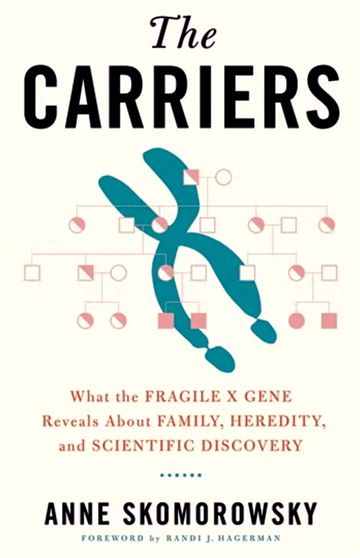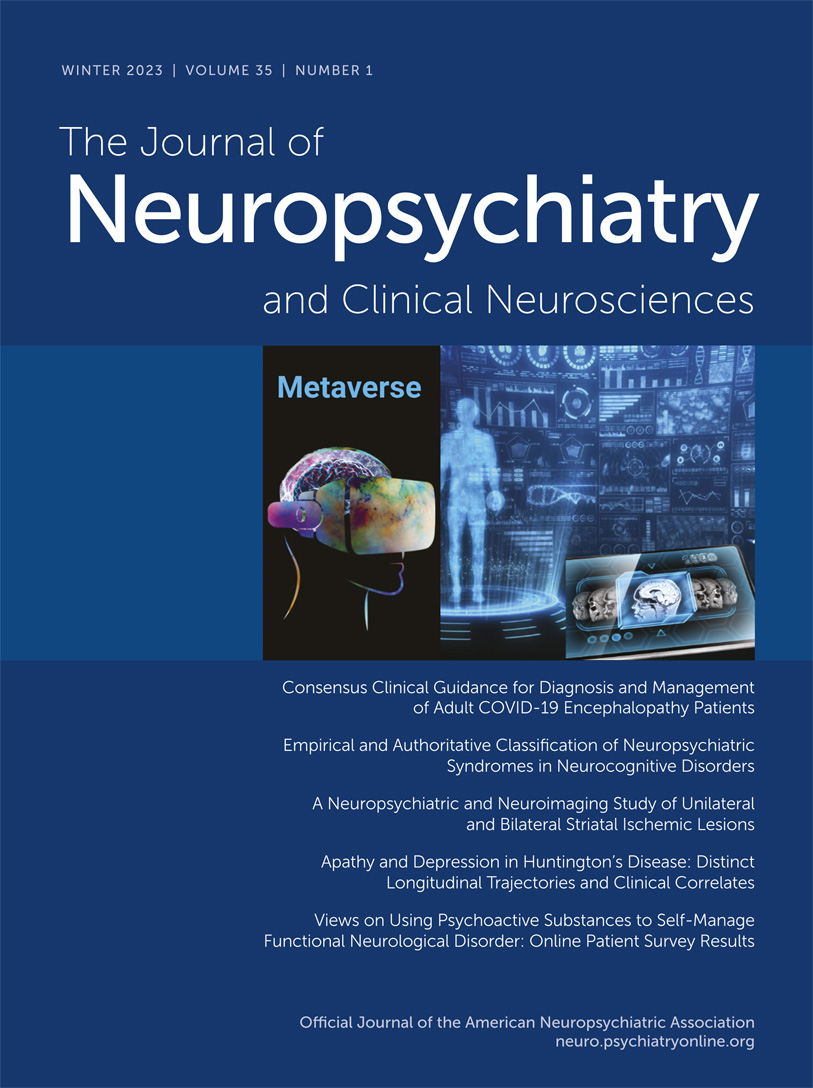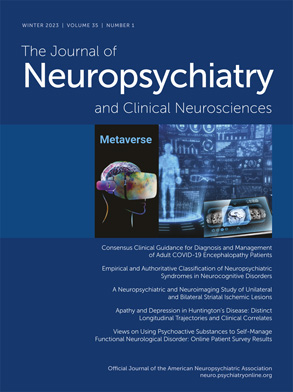by Anne Skomorowsky, M.D. New York, Columbia University Press, 2022, 280 pages.
In The Carriers, Dr. Anne Skomorowsky—a consultation-liaison psychiatrist, clinical instructor in psychiatry at the New York University (NYU) Grossman School of Medicine and attending psychiatrist at NYU Langone Hospital—offers us a thorough, sensitive, and provocative account of the lives of patients with the premutation, or carrier state, of fragile X disorders—many clustered in families of multiple fragile X–affected individuals. In this relatively slim volume, the author offers a concise yet thoroughly informative account of the genetic and clinical history of the ascertainment of fragile X syndrome, a critical distinction between fragile X syndrome and its carrier state, detailed and poignant narratives of many affected patients, and the evolution of the diagnosis, classification, and clinical research paradigm into this important condition.
Fragile X–related conditions are of great interest to both psychiatrists and neurologists in that there may be manifestations in both the psychiatric and neurologic symptom and syndrome domains. Indeed, so many patients suffer in both domains that we really ought to consider these conditions as prototypical “neuropsychiatric” disorders, similar in conceptual inclusion to multiple sclerosis and Parkinson’s disease.
Whereas full-spectrum fragile X syndrome is generally better known and usually manifests in childhood with various degrees of cognitive and behavioral impairment (though the spectrum of illness ranges from the subtle to the severely impairing), Dr. Skomorowsky focuses her book on the carrier or premutation states. The book’s thesis is that for most patients the carrier-state illness is not just a milder version of fragile X syndrome, but is a distinct, separate illness with different genetic deficits, pathophysiology, and multisystemic clinical manifestations, which have been ascertained only in the past 20 years. Additional chapters address the history of ascertainment of genetically caused intellectual disability, the ultimately successful search for the fragile X gene, and the evolution of fragile X disorders clinical research.
One fascinating aspect of assessing clinical illness in carriers, particularly psychiatric comorbid illness, is that many carriers are actively involved in raising one or more full-spectrum fragile X children, such that the axiomatic (yet, critically, incomplete) assumption of clinicians is often that the stresses of raising affected children are the genesis of the carriers’ often significant psychiatric comorbidity. Dr. Skomorowsky persuasively shows, by citations of literature, interviews with many fragile X researchers, and her own interviews with affected patients, that the psychiatric comorbidity in carriers is primarily part of the phenotype of the carrier premutation state itself. Carriers need empathic clinical care on this basis alone.
The book emphasizes the multigenerational nature of the carrier/premutation conditions. Although young adult females who carry the premutation are prone to ovarian dysfunction, other systemic manifestations, anxiety and depressive disorders, and problems with social behavior, middle-aged and older male carriers (the grandfathers of full-mutation fragile X children and fathers of the adult female carriers) are at risk for an often debilitating fragile X–associated tremor-ataxia syndrome (FXTAS, acronym pronounced “fax-tass”), which is a mixed movement disorder and dementia syndrome that can lead to significant debility. One of the many instructive ironies in fragile X research is that FXTAS was initially described by the noted fragile X clinical researcher Randi Hagerman, M.D., making FXTAS perhaps the only adult degenerative dementia syndrome discovered by a pediatrician. In many cases, young adult carriers are “pulled two ways” between attending to their own impaired children and assisting their progressively ill fathers, all while managing their own, often clinically impairing, symptoms.
Throughout the text, Dr. Skomorowsky highlights the need for an empathic approach, the need for physician-patient alliance, and an appreciation of the coping strategies exhibited by fragile X carrier patients while they manage their own variable symptoms in the broader context of affected family members. As clinical and basic sciences advance apace, it is both inevitable and desirable that additional neuropsychiatric illnesses will be discovered to have a genetic and molecular basis. The recent experience with fragile X premutation carrier states illustrates this magnificently. Psychiatrists curious about genetically determined psychiatric illness—which should be all of us—will find this book a valuable introduction to the world of fragile X illnesses and of patients coping with them.


